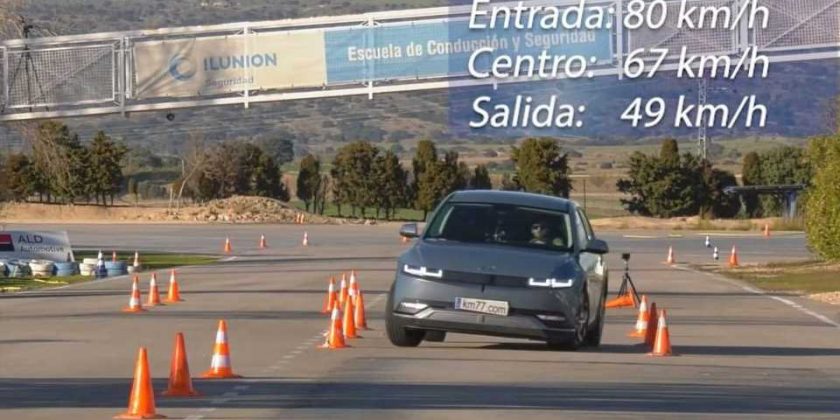About a month ago, the Kia EV6 took the challenging moose test. It passed it with no issues and posted the best run of 78 km/h (48.5 mph). Its run was good enough to beat some high-performance models.
But this time around, it’s the EV6’s cousin that will take on the moose test. That would be the Hyundai Ioniq 5, and it was km77.com that performed the test on the electric Hyundai. We will cut straight to the chase here and say it did even better than the Kia. While the Kia had topped out at 78 km/h, the Hyundai managed to drive through the pylons without hitting anything at 80 km/h (49.7 mph).
If those results aren’t impressive enough, the Ioniq 5 was faster through the cones than the Mercedes-AMG A45 S (75 km/h or 46.6 mph) and the BMW M235i (68 km/h or 42.2 mph). Of course, we’re not suggesting that the Hyundai is a sportier car than the two German performance cars, but it shows how capable the Ioniq is when it comes to road holding. Tires are also a factor here, but that doesn’t take away the Hyundai’s good showing.
At 80 km/h, the Ioniq 5 matches the Toyota GR Yaris in the moose test. That result also makes the Hyundai one of the fastest cars to perform the test. That said, two electric vehicles have gone faster. These cars are the Tesla Model Y and the Model 3, clocking in at 83 km/h (52 mph).
Km77.com said that it got the best result with the regenerative braking system at the highest level. At lower settings, the Ioniq 5 couldn’t avoid the cones at 78 km/h (48.5 mph). The publication also said that it wasn’t the most nimble-feeling car around the slalom but described the body motions as smooth. With that in mind, you shouldn’t have much trouble avoiding a surprise obstacle when you’re driving one of these.
Source: km77.com via Youtube
Source: Read Full Article
